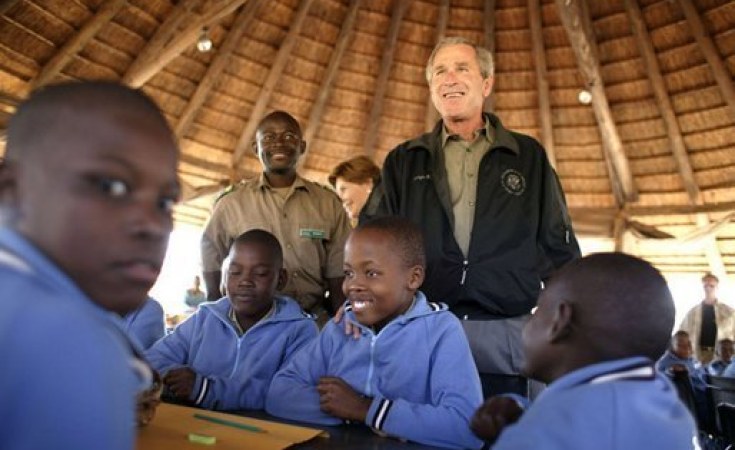Washington, DC — Although Kenyans are anxious to see U.S. government warnings against travel to their country lifted, "at the moment, Kenya is a place where [U.S.] citizens should be wary of traveling," President Bush told reporters, Wednesday.
In the White House's Roosevelt room, Bush spoke with four Africa-focused journalists about next week's state visit by President Mwai Kibaki of Kenya, one of four key U.S. strategic partners in Africa. The senior director for African affairs on the National Security Council, Dr. Jendayi E. Frazer, sat with the president as he fielded questions from Charles Cobb Jr of allAfrica.com, Martin Mbugua of the Kenyan Daily Nation, Kevin Kelly of the East African and Esther Githui of the Voice of America Swahili Service.
Bush said he expects that President Kibaki will want to discuss the damage caused by the travel advisories to Kenya's economy. "I hope he does bring this up because we will be able to explore ways to work, to create the conditions so that the advisories can come off... We certainly don't want to unnecessarily damage our friend, but on the other hand, we have an obligation to be frank and honest with the American people."
Security, democracy and economic development will top the agenda of a two-day state visit by Kibaki that begins Monday. The visit will be capped by President Bush's first state dinner for an African head of state. "It's a way for us to send a strong message, not only to the president, but to the people of Kenya that, one, we respect their friendship; two, we like the cooperation - particularly on counter-terrorism; and three, we respect democracy in our country and we like leaders who uphold the democratic traditions. The president has done that."
A senior administration official explained later that President Bush does not know President Kibaki well and thought that a state dinner which "brings together a range of our cabinet officials" would be the most effective means of deepening U.S. ties to the new Kenyan government. "He talks to Mbeki, Obasanjo and other African leaders all the time. He hasn't with Kibaki."
Kibaki's Monday morning Oval office meeting with President George Bush, Secretary of Defense Donald Rumsfeld and other administration officials will be followed by a meeting in the Cabinet room with economic advisors, including United States Trade Representative Robert Zoellick and USAID Administrator Andrew Natsios. Separate meetings with Treasury Secretary John W. Snow and Secretary of State Colin Powell are scheduled. The state dinner will be held that night.
"We will be encouraging President Kibaki to continue on being a regional leader.If he has got suggestions about how our State Department and aid programs can help him do a better job as a regional leader, we are interested in listening," Bush said.
Despite current travel warnings and anxieties, President Bush pointed to new money that he believes will enable Kenya to come to grips with the problem. "It is important to work with Kenya to relieve the situation. It is not only for our own national interests, it is in Kenya's interest that we mutually deal with the terrorists. That's why we put up a 100 million dollars on the East African terrorist initiative."
"Most of that will go to Kenya," a senior administration official said at a briefing for reporters, Tuesday.
"The best role the United States can play is to be supportive of regional leaders, and/or, for example, the capacity of African peacekeeping forces to carry the task of dealing with civil disputes. Kenya is playing a vital role in the Sudan [peace talks]," said Bush.


